Etosid 100mg Etoposide Injection 5ml
$58.00 – $500.00Price range: $58.00 through $500.00
Etosid 100 is used to treat certain types of cancer, such as lung cancer, testicular cancer, and small-cell carcinoma. It contains Etoposide, which works by interfering with the growth and division of cancer cells.
| Pack Size | Price | Price / Unit | Quantity | |
|---|---|---|---|---|
| 1 Injection | $58.00 | $58.00/ unit | ||
| 5 Injections | $275.00 | $55.00/ unit | ||
| 10 Injections | $500.00 | $50.00/ unit |
Looking for bulk / B2B pricing? | Send Inquiry |

| SKU | 11095 |
| Manufacturer | Cipla Limited |
| Categories | Anti Cancer |
| Delivery Time | 10 - 14 Working Days |
| Strength | 100mg |
Introduction to Etosid 100 mg Injection 5ml
Etosid 100mg Injection 5ml is a chemotherapy medication used primarily in the treatment of various types of cancer. The active ingredient in this injection is Etoposide, which belongs to a class of drugs known as topoisomerase inhibitors. These drugs work by inhibiting the action of an enzyme called topoisomerase II, which is crucial for the replication of DNA in cancer cells. By interfering with this enzyme, Etosid helps prevent the cancer cells from dividing and growing, ultimately leading to their death.
This medication is typically administered in a clinical setting under the supervision of a healthcare professional. The dosage and frequency of administration depend on the type and stage of cancer being treated, as well as the patient’s overall health and response to the therapy. Etosid 100mg Injection is often used in combination with other chemotherapy drugs to enhance its efficacy.
Uses of Etosid 100 mg 5ml
Etosid 100 mg/5 ml contains Etoposide, a chemotherapy medication used to treat various types of cancer. It works by interfering with the DNA synthesis of cancer cells, slowing or stopping their growth. This drug is usually administered under medical supervision as part of a cancer treatment regimen. Here are the common uses of Etosid:
- Lung Cancer (Small Cell Lung Cancer)
- Testicular Cancer
- Lymphomas
- Leukemias
- Ovanrian Cancer
- Brain Tumors
- Neuroblastoma
How Does Etosid 100 5ml Works?
Etosid 100 mg/5 ml (Etoposide) works by targeting cancer cells during their DNA replication process. It inhibits an enzyme called topoisomerase II, which is essential for unwinding and repairing DNA strands during cell division. By blocking this enzyme, Etosid prevents cancer cells from repairing damaged DNA, leading to cell death.
This drug primarily acts during the G2 phase (pre-mitosis) of the cell cycle, when cells prepare to divide. Cancer cells divide more rapidly than normal cells, making them more vulnerable to Etosid’s effects. As a result, Etosid slows the growth and spread of cancer by stopping the cells from multiplying.
Side Effects of Etosid 100 5ml
Common Side Effects
- Nausea and Vomiting
- Hair Loss
- Decreased Blood Cell Counts
- Loss of Appetite
- Mouth Sores
- Fatigue
- Diarrhea or Constipation
- Skin Changes
- Nail Changes
Serious Side Effects
- Bone Marrow Suppression
- Secondary Cancers
- Liver and Kidney Problems
- Pulmonary Toxicity
- Gastrointestinal Complications
- Nerve Damage
- Infertility
Dosage of Etosid 100 5ml
- For small cell lung cancer: 35 to 50 mg/m² per day on days 1 to 5 or 50 to 100 mg/m² on days 1, 3, and 5, repeated every three to four weeks.
- For testicular cancer: 50 to 100 mg/m² per day for five days, repeated every three to four weeks.
- For other types of cancer: Dosages and schedules can vary widely depending on the specific cancer being treated.
How to Manage Side Effects?
- Stay Hydrated Daily
- Eat Small Meals
- Rest Frequently
- Avoid Crowded Places
- Use Anti-Nausea Meds
- Practice Good Hygiene
- Monitor Blood Counts
- Report Severe Symptoms
- Gentle Hair Care
- Follow Doctor’s Advice
Warning & Precautions
1. Infection Risk
- It lowers white blood cells, increasing the risk of infections.
2. Blood Count Monitoring
- Regular blood tests are essential to check for low blood cells.
3. Allergic Reactions
- Watch for rashes, swelling, or difficulty breathing.
4. Organ Function
- Monitor kidney and liver function regularly.
5. Pregnancy & Breastfeeding
- Avoid during pregnancy or while breastfeeding due to harmful effects on the baby.
6. Immune Suppression
- Avoid close contact with sick people to prevent infections.
7. Bleeding Risk
- Be cautious of bleeding or bruising due to low platelet counts.
8. Avoid Live Vaccines
- Live vaccines can cause serious infections in immunosuppressed patients.
Safety Advice
- Take medicine exactly as doctor advises
- Avoid contact with sick people always
- Monitor blood counts through regular tests
- Use contraception to prevent pregnancy risk
- Stay hydrated to avoid dehydration issues
- Report severe side effects immediately
- Avoid live vaccines during treatment period
- Check liver and kidney functions regularly
- Rest well to manage fatigue better
FAQs – Frequently Asked Questions
1. Can Etosid 100mg Injection 5ml Affect Fertility?
Yes, Etosid may affect fertility in both men and women. It’s important to discuss fertility preservation options with your healthcare provider before starting treatment, especially if you plan to have children in the future.
2. What Important Things Should I Take Care of While Taking Etosid 100mg Injection 5ml?
While taking Etosid 100mg Injection 5ml, make sure you visit your doctor at all the appointments to ensure that treatment works. Regular monitoring of blood and urine tests and weight checks are required. An effective way of contraception should be used by both men and women while taking the Etosid 100mg Injection 5ml.
3. Can I Stop Taking Etosid 100mg Injection 5ml on My Own?
Do not stop taking Etosid 100mg Injection 5ml on your own. Take Etosid 100mg Injection 5ml for as long as your doctor prescribes it, depending on your medical condition. Do not hesitate to speak with your doctor if you experience difficulty while taking Etosid 100mg Injection 5ml.
4. Does Using Etosid 100mg Injection 5ml Make Me Susceptible to Infections?
Etosid 100mg Injection 5ml can make you more likely to get infections or may worsen any current infections. Avoid contact with people with infections that may spread to others (such as chickenpox, measles, or flu). Consult your doctor if you have been exposed to an infection or for more details.
| Pack Size | 1 Injection, 10 Injections, 5 Injections |
|---|---|
| Price/Unit | $50/unit, $55/unit, $58/unit |
Be the first to review “Etosid 100mg Etoposide Injection 5ml” Cancel reply
Related Products
Anti Cancer
Anti Cancer
Anti Cancer
Anti Cancer
Anti Cancer

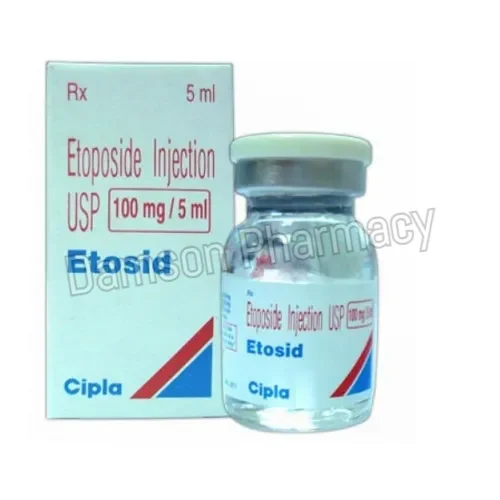
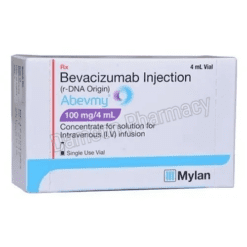
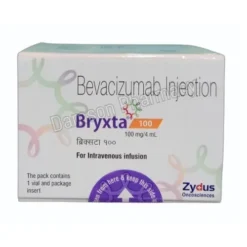

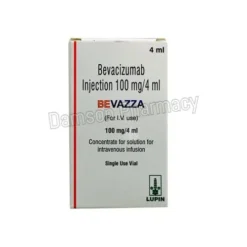
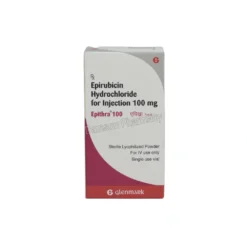
Reviews
There are no reviews yet.